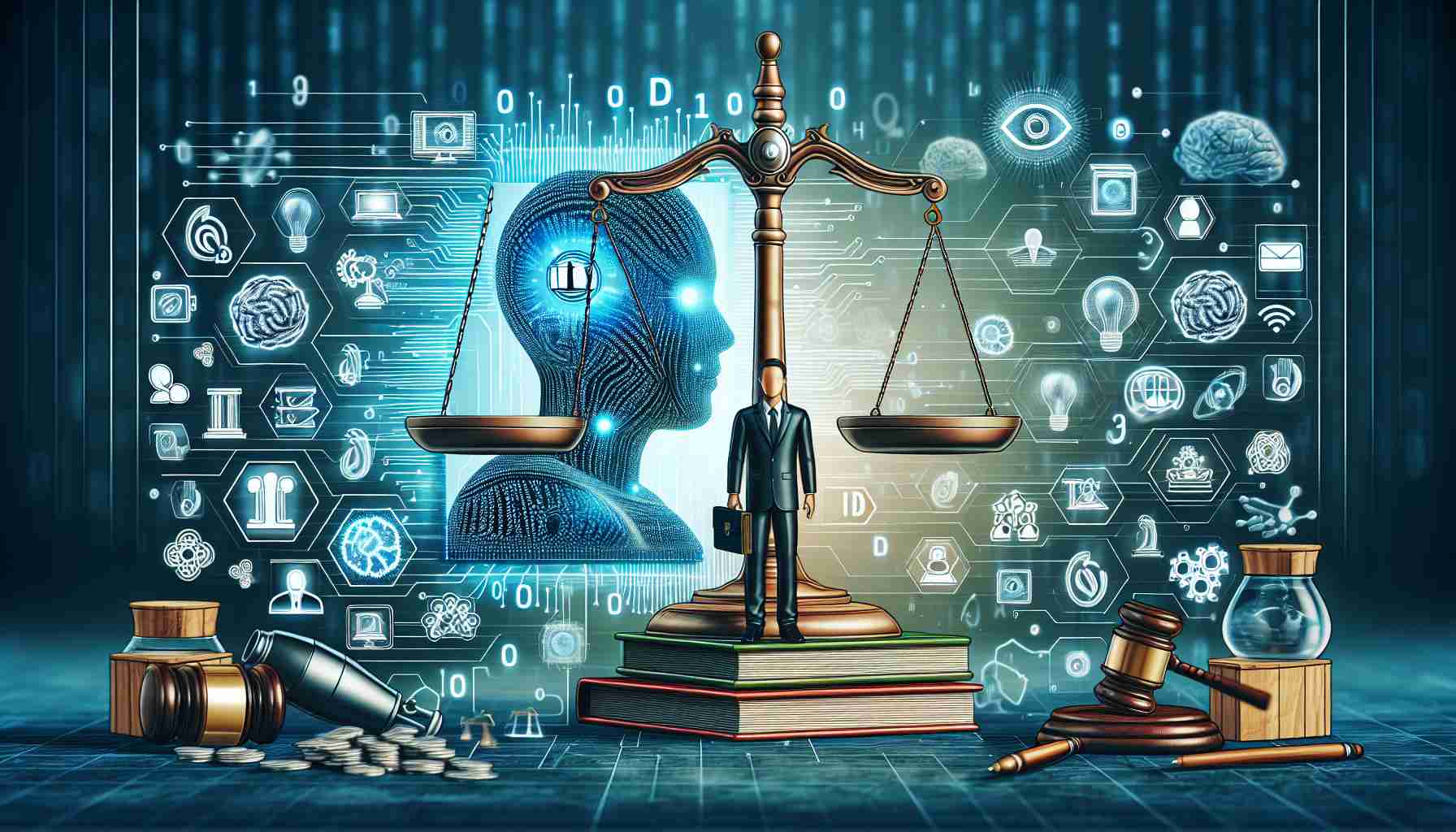The realm of Artificial Intelligence (AI) is catalyzing groundbreaking changes across numerous sectors. Where simple automation once stood, we now have AI algorithms crafting not only solutions to complex problems but also generating works of art and literature. The revolution brought by AI is nothing short of spectacular, leading to a paradigm shift in multiple domains.
Intellectual property (IP) stands at the forefront of this transformation, harboring the rights over intellectual creations, such as inventions, artistic works, designs, and trademarks. Copyright is a branch of IP that shields original works of authors, granting them legal recognition and security. The intersection of AI and IP law opens up a new dimension of challenges and debates, particularly when it comes to recognizing and protecting algorithmically generated content.
The legal system grapples with the notion of AI-generated content as potentially original creations eligible for copyright protection. AI’s capabilities have reached a level where its outputs, be it in the form of music, literary works, or even inventions, mimic the intricacy and creativity of human output. This situation necessitates an important question about the ownership of AI-created works.
Contemporary discussions pivot on the legal definition of authorship and originality, with implications for how we may need to reshape IP rights to adapt to the AI age. The current trajectory of AI’s evolution suggests that these questions will not only persist but intensify, reinforcing the need for robust legal frameworks that can account for the innovative nature of AI while safeguarding the rights of human creators. The journey into the future of AI and intellectual property is well underway, and its destination is poised to redefine the landscape of creation, innovation, and ownership.
Advantages of AI in Intellectual Property:
– Efficiency: A significant advantage of AI in IP is its ability to process and analyze large volumes of data much faster than humans. This can streamline the process of searching for prior art when filing patents or checking for trademark violations.
– Creativity: AI can generate innovative solutions to problems and even create music, literature, and art, which can inspire new forms of creativity and expand the boundaries of what is considered art.
– Accessibility: With AI’s help, smaller businesses and individuals gain improved access to IP protection by simplifying and reducing the costs of IP registration and management processes.
Disadvantages of AI in Intellectual Property:
– Authorship Issues: Determining who holds the rights to an AI-generated work is problematic. If an AI creates something without human intervention, who should be credited? This has implications for copyright law, moral rights, and financial benefits.
– Infringement Risks: AI can inadvertently infringe on existing IP rights when creating new work, especially if it has been trained on copyrighted material, potentially leading to legal challenges and disputes.
– Job Displacement: As AI becomes more capable of performing tasks traditionally done by humans, such as conducting IP searches or even creating content, there may be a decrease in job opportunities for professionals in these areas.
Key Questions and Answers:
– Who owns IP created by AI? AI-generated content raises questions about ownership and copyright. Currently, most legislation does not recognize AI as an author. Typically, ownership is attributed to the human operator or owner of the AI.
– How can IP law adapt to AI? IP laws may need to evolve to consider creations made by autonomous systems. This could mean creating new categories of rights or distinguishing between AI-assisted and AI-generated works.
Key Challenges and Controversies:
– Adapting Legal Frameworks: The pace of technological change outstrips the evolution of legal systems. Adapting copyright laws to AI is a monumental task that entails global coordination and consensus, which is inherently challenging.
– Protecting Human Creativity: There is a tension between encouraging innovation and protecting the rights of human creators. Some fear that AI could devalue human artistic efforts by flooding the market with AI-generated content.
– Moral Rights: There are also concerns about moral rights, such as the right to be recognized as the author or to object to derogatory treatment of one’s work, which do not apply to AI but can be affected by AI-generated content.
For further information on Intellectual Property and AI, authoritative categories such as the World Intellectual Property Organization (WIPO) offer in-depth resources and discussions. You can find more at the WIPO website. Additionally, for information on current laws and legislation regarding AI and IP, national IP offices often provide guidance and updates on their respective websites.

